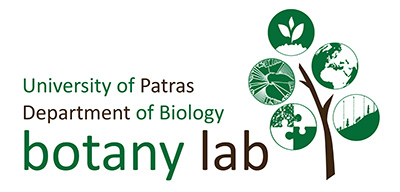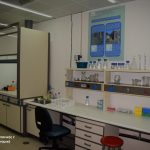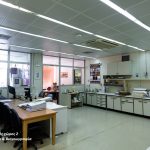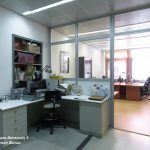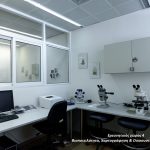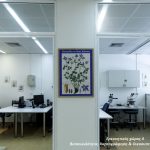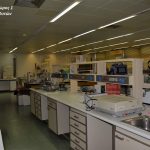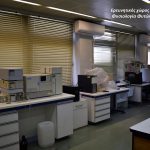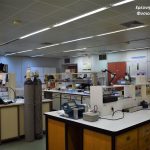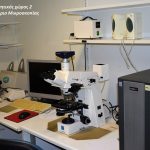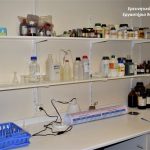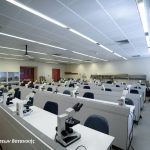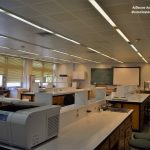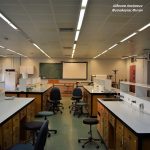Introduction
The main research activities of the Section of Plant Biology focus on the areas of:
- taxonomic, functional and phylogenetic diversity and biogeography;
- mapping, monitoring, evaluation and management of species, habitats, ecosystems and ecosystem services;
- ecology, aquatic quality assessment and natural environment management;
- plant physiology and ecophysiology.
The research teams of the Section of Plant Biology collaborate with each other, as well as with colleagues from the Department of Biology and other Research Institutions in Greece and abroad. There are two government-recognized Laboratories in the Plant Biology Department: the Botany Laboratory and the Plant Physiology Laboratory, as well as a Plant Ecology Laboratory since the mid 80s. The Section is also responsible for the supervision of the Botanical Museum of the University of Patras. Its members teach in 5 compulsory (4 courses offered by the Section and 1 intersectional) and 7 elective courses (5 courses offered by the Section and 2 intersectional) of the Undergraduate Program in Biology; 5 courses of the Postgraduate Program of the Department of Biology; as well as 4 courses in Postgraduate Programs offered jointly with other Departments/ Schools of the University of Patras.
Undergraduate courses
Postgraduate courses
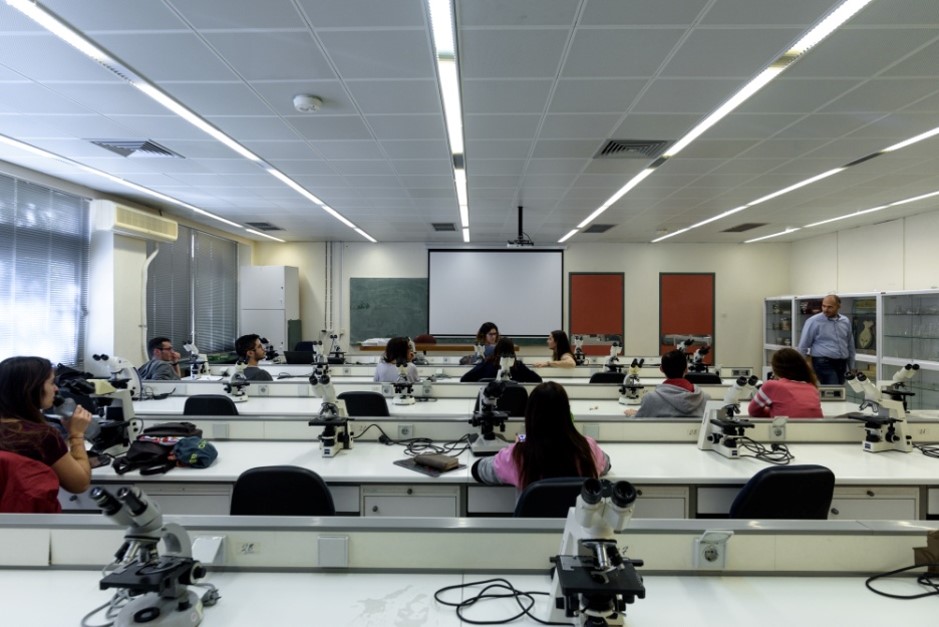
Laboratories and Research
Botanical Museum
The Botanical Museum of the University of Patras was founded in 1973, based on the P.D. 360 (Government Gazette 264 / 3-10-1973), resulted from the initiative of Professor Dimitrios Phitos, who was the first Director of the Chair of Botany, at the Department of Biology. The main goal of the Museum is the investigation and scientific documentation of the natural capital of Greece with emphasis on its flora.
It functions as a basic research structure and infrastructure of the Department of Biology that a) is the basis for systematic, biogeographical, and phylogenetic research of plants and b) supports the education of students of the Department of Biology.
Read more about the Botanical Museum
Research and Training Laboratories
Head of Section
Grammatikopoulos George
Associate Professor | grammati@upatras.gr | +30 2610 996771


